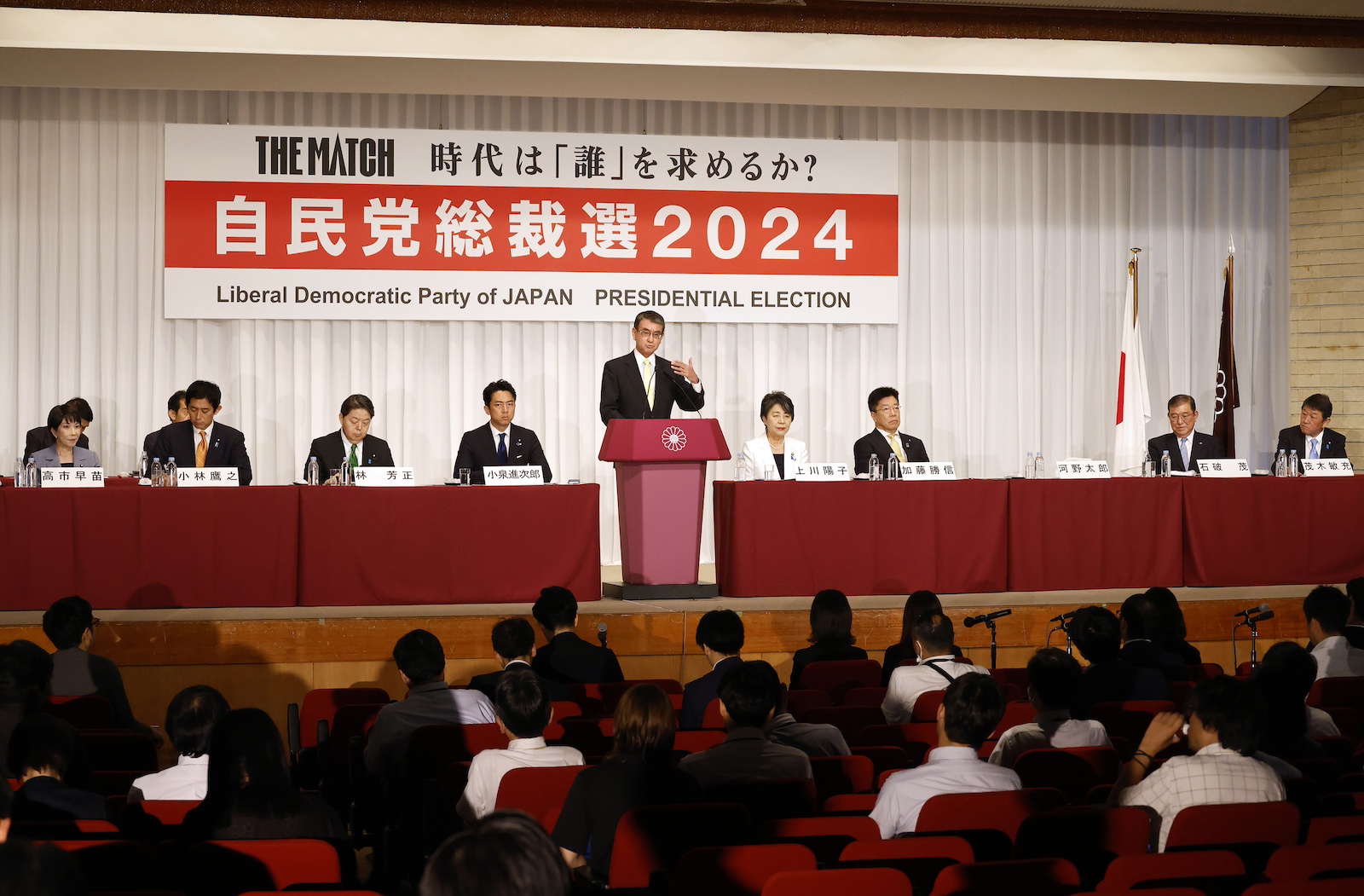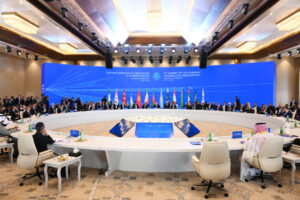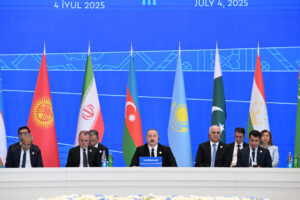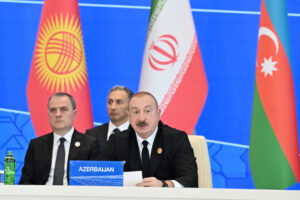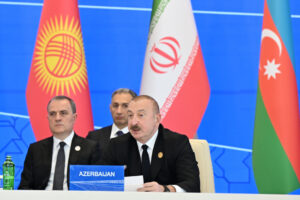Tokyo, 14 September, /AJMEDIA/
Contenders for Japan’s ruling party leadership, who are vying to become the next prime minister, underscored the need to build on the wage growth momentum seen under incumbent Fumio Kishida, but they differed on how to support households and the broader economy amid rising prices.
Shinjiro Koizumi, a rising star in the Liberal Democratic Party and one of the public favorites to take over from Kishida, said he would expand support to low-income households and pensioners via cash handouts.
While Kishida’s government has provided financial assistance to reduce utility bills for households, other candidates, including former economic security minister Takayuki Kobayashi, once a Finance Ministry official, and Digital Minister Taro Kono said support in the form of subsidies should be “targeted.”
In the Sept. 27 LDP leadership race, a record nine contenders are competing to take the helm of the ruling party hit by a slush funds scandal. Key issues include how to revamp the party, bolster the economy and address security and demographic challenges.
The next president is certain to become the prime minister as both houses of parliament are controlled by the LDP and its junior coalition partner, Komeito party. One focal point is when the new leader will call a snap election.
“What we are seeing is the economy finally transitioning to a growth-oriented one from deflation. We need to accelerate the progress rather than moving backward,” Koizumi said at a joint press conference with the other eight contenders at the LDP headquarters.
At the same event, Kono said, “We need to stop the practice of giving subsidies to everything,” emphasizing the need to examine the effectiveness of recent budgeting.
Japan has seen the best outcome in three decades of annual wage negotiations between management and labor. Wage growth has turned positive in recent months, even when the effects of inflation are accounted for.
The Japanese government is believed to be on the cusp of officially declaring an end to deflation, but rising prices of various goods due in large part to higher import costs have weighed heavily on consumers.
Another contender, Shigeru Ishiba, a former Defense Minister making his fifth attempt to become LDP chief, said he would strive to revitalize regional economies if elected president. He added that narrowing regional and income gaps “should be the way for the economy to grow.”
While Chief Cabinet Secretary Yoshimasa Hayashi, a close ally of Kishida, and other candidates generally agree on continuing Kishida’s economic policies, a key point of contention is whether and when to raise taxes to fund a substantial increase in defense spending.
Toshimitsu Motegi, No. 2 in the LDP, reiterated that he would not resort to raising taxes, contrary to the government’s plan. His stance, unveiled just before the start of official campaigning on Thursday, sent shockwaves through the LDP and beyond.
Sanae Takaichi, who serves as the economic security minister in Kishida’s Cabinet, also took a cautious stance. “When is the next tax increase going to be? This mindset needs to change. Economic growth comes first and foremost,” she said.
Japan plans to boost defense spending to a total of 43 trillion yen ($305 billion) over five years through fiscal 2027. The government has already decided to fund part of the total by raising taxes, though the exact timing has yet to be determined.
Japan’s fiscal health is the worst among developed nations. But the COVID-19 pandemic, the cost-of-living crisis following Russia’s war in Ukraine and the yen’s fall to record lows have led to more fiscal spending to mitigate the pain felt by households.
Among other candidates, former health minister Katsunobu Kato, who has promised to “double people’s incomes,” said fiscal restoration does not always need to come first and that now is the time to focus on economic growth.
Yoko Kamikawa, who has served as foreign minister under Kishida, said she will make sure that the benefits of economic growth can be distributed more widely to people, a goal set by the premier under his push for a “new version of capitalism.”

